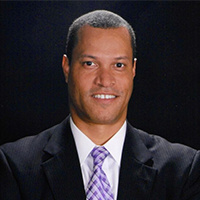Portsmouth RICO Act Lawyer, Virginia
Sponsored Law Firm
-
 x
x

Click For More Info:
-
The Law Offices of Richard L. Cooper, P.A.
848 Brickell Avenue Suite 800 Miami, FL 33131» view mapDWI/DUI, Drug Trafficking, Felony Nationally Ranked Top 40 Under 40
With Richard L. Cooper you can expect a trusted confidant who will work diligently to fully understand your case and determine a road map to help you regain control of your life.
800-756-2781
Not enough matches for Portsmouth RICO Act lawyer.
Below are all Portsmouth Criminal lawyers.
S. W. Dawson
✓ VERIFIEDS. W. Dawson, Esq., is the founder and managing member of Dawson, P.L.C. Mr. Dawson specializes in bespoke litigation strategies, particularly in t... (more)
Jim Hurley
Jim Hurley has been practicing law throughout Virginia for more than two-and-a-half decades. During his career, he has tried more than 100 jury trials... (more)
Kevin Reese Pettrey
✓ VERIFIEDI am an attorney who has been practicing in Virginia since 2011, concentrating in Family Law (Divorce, Child Custody, Support, and related matters); C... (more)
Brian Dunnigan
✓ VERIFIEDBrian Dunnigan advises on all aspects of Traffic Law and Criminal Law across multiple Hampton Roads, Virginia jurisdictions, including the cities of C... (more)
Jason A. Barlow
✓ VERIFIEDJason A. Barlow was raised in the Great Bridge area of Chesapeake and attended Great Bridge High School. After graduation, he went to Old Dominion Uni... (more)
Diallo Kobie Morris
✓ VERIFIEDDiallo Morris is a practicing lawyer in Chesapeake, VA. He currently is a partner at Morris, Crawford & Currin, P.C. with offices in Chesapeake and No... (more)
Michelle N Fremen
✓ VERIFIEDMichelle is a Florida native and came to Virginia for the Military, serving in the United States Navy as a naval helicopter mechanic. After her servic... (more)
Aaron M Pomeranz
✓ VERIFIEDAaron Pomeranz is a long-time resident of Hampton Roads and attended Kempsville High School where he played catcher for the Chiefs. He attended Willia... (more)
FREE CONSULTATION
CONTACT
 Richard L. Cooper Miami, FL
Richard L. Cooper Miami, FL AboutMiami Attorney at Law
AboutMiami Attorney at Law ServicesCriminal Defense
ServicesCriminal Defense









